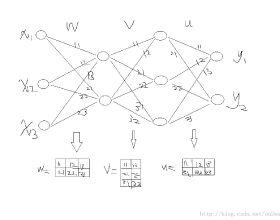Recent years have witnessed a growing call for renewed emphasis on neuroscience-inspired approaches in artificial intelligence research, under the banner of $\textit{NeuroAI}$. This is exemplified by recent attention gained by predictive coding networks (PCNs) within machine learning (ML). PCNs are based on the neuroscientific framework of predictive coding (PC), which views the brain as a hierarchical Bayesian inference model that minimizes prediction errors from feedback connections. PCNs trained with inference learning (IL) have potential advantages to traditional feedforward neural networks (FNNs) trained with backpropagation. While historically more computationally intensive, recent improvements in IL have shown that it can be more efficient than backpropagation with sufficient parallelization, making PCNs promising alternatives for large-scale applications and neuromorphic hardware. Moreover, PCNs can be mathematically considered as a superset of traditional FNNs, which substantially extends the range of possible architectures for both supervised and unsupervised learning. In this work, we provide a comprehensive review as well as a formal specification of PCNs, in particular placing them in the context of modern ML methods, and positioning PC as a versatile and promising framework worthy of further study by the ML community.
翻译:暂无翻译



